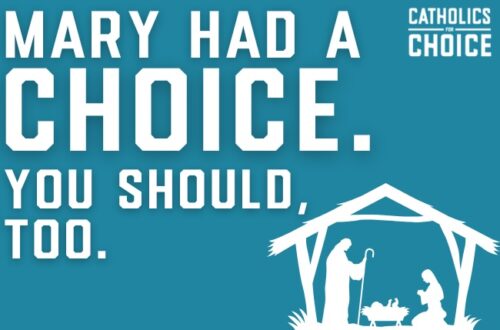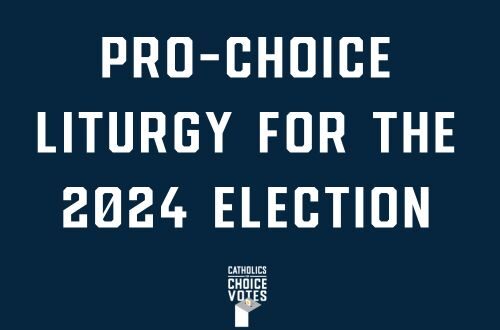Catholic MPs May, in Good Conscience, Vote to Retain Current Time Limit on Abortion
In Letter to Parliament, Catholic Group Urges Respect for Women’s Rights and Scientific Data
London—In considering how to vote on abortion, Catholics for Choice president Jon O’Brien called on Catholic MPs to remember that Catholic teaching about the primacy of conscience holds that the individual must follow his or her conscience—even if it is in conflict with church teaching. In addition, O’Brien noted that Catholic teaching on conscience requires at least tolerance if not respect for another person’s decision. Catholic parliamentarians are therefore free to follow their own consciences, and to support policies that allow all people to make informed, conscientious decisions about their lives and their families.
In a letter to MPs, O’Brien called on parliament to oppose any attempts to reduce the time limit at which abortions may be performed during its consideration of the Human Fertilisation and Embryology Bill. He cautioned that the Catholic hierarchy does not speak on behalf of all Catholics nor do they truly represent the totality of Catholic teaching.
“Polls of Catholics around the world show that the bishops represent a minority view among Catholics on reproductive health matters. Last November, a CFC poll by YouGov showed that a plurality of British Catholics do not agree with the bishops on abortion. A third more Catholics agreed than disagreed with the statements: “It should be legal for a woman to have an abortion when she has an unwanted pregnancy” and “Catholic bishops concentrate too much of their attention on abortion when there are other issues that also require their attention.” Similarly, recent CFC polls in the United States, Mexico and Bolivia have found that majorities of Catholics support a woman’s right to access abortion, as do other polls of Catholics in Canada, France, Germany and Spain.
He continued, “There is a long tradition of dissent within the church, and many Catholics—including theologians, nuns, priests and lay people—disagree with the hierarchy’s positions on a range of issues including the use of condoms, contraception and abortion. As recently as 1974, the Vatican Congregation for the Doctrine of Faith issued a paper on abortion. While it condemned abortion as immoral, it admitted that church teaching is neither definitive nor unchanging on this subject. Theologians have disagreed from the beginning of church history up to our time on when in pregnancy the fetus becomes a person. While the church has favoured different opinions on this subject at different times in history, none has ever been declared infallible.”
O’Brien cited two reasons to leave the time limit for abortion at 24 weeks:
- The potentially deleterious impact on women’s health that would result from a reduction in the time limit.
- The lack of scientific data to indicate such a reduction is necessary or would be beneficial.
Neither the Royal College of Obstetricians and Gynaecologists nor the British Medical Association believes that a case can be made for reducing the time limit for abortion. Parliament should respect those views in considering this important matter.
He concluded: “As people of faith, we want our voices to be heard, and we want everyone else’s voices to be heard as well. We look to our governments to act in accordance with objective, fact-based findings and not to privilege one set of religious or moral beliefs over other, equally valid religious or moral beliefs.”
Resources:
Full text of letter
In Good Conscience [PDF]
Canon Law #1 [PDF]
-end-




